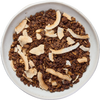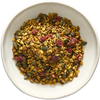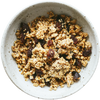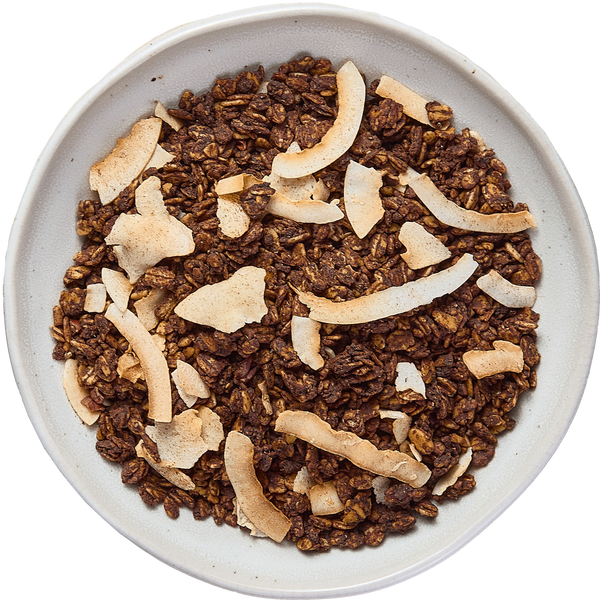
A Complete Guide to Ashwagandha: Benefits and Side Effects
What Is Ashwagandha?
Ashwagandha, a powerful herb with a host of benefits, has received much attention lately. As the name suggests, Ashwagandha is sourced from the Indian plant Withania somnifera. It has been used in traditional Ayurvedic medicine for centuries as a treatment for a variety of conditions.
It is a shrub that belongs to the Solanaceae family and is native to India. The leaves and roots of the ashwagandha plant are used for medicinal purposes.
How does Ashwagandha work?
Recent studies have shown that Ashwagandha may help improve cognitive function and memory, lower blood sugar levels, and reduce stress and anxiety. It is also thought to have immune-boosting and anti-inflammatory properties.
If you're looking for an all-natural way to improve your health and well-being, consider adding Ashwagandha to your supplement regimen.
Why is Ashwagandha good for you?
Ashwagandha is a popular herb that is known for its many health benefits. It is considered an adaptogen, which means that it helps the body to adapt to stress. It is also an anti-inflammatory agent and an antioxidant.
Recent research suggests that ashwagandha may help reduce stress and anxiety, lower blood sugar levels, and enhance cognitive function and memory. It is also believed to have anti-inflammatory and immune-boosting properties.
What are the benefits of Ashwagandha?
Ashwagandha, an Indian herb, has been used in traditional Ayurvedic medicine for centuries. It is now gaining popularity in the Western world as a natural way to improve overall health and well-being. Here are six points on the benefits of Ashwagandha:
- Ashwagandha is an adaptogen, which means that it helps the body to adapt to stressors, both physical and emotional. This means that it helps the body to cope with stress. It does this by reducing levels of the stress hormone cortisol.
- Ashwagandha is anti-inflammatory and helps to soothe joint pain. Ashwagandha can boost stamina and muscle strength. This is likely due to its ability to reduce cortisol levels.
- Ashwagandha is an antioxidant and can help protect the body from free radical damage. This may be beneficial for conditions such as arthritis and asthma.
- Ashwagandha increases energy and vitality. Ashwagandha can improve cognitive function. One study showed that it improved memory and reaction time in healthy adults.
- Ashwagandha supports healthy thyroid function. Ashwagandha may also have anticancer properties. One study showed that it reduced the growth of breast cancer cells.
- Ashwagandha helps to improve sleep quality and reduce stress levels. Ashwagandha can help to reduce anxiety and depression. This is thought to be due to its effects on GABA and serotonin neurotransmitters.
What are the potential side effects of Ashwagandha?
Ashwagandha is a revered herb in Ayurveda and has been used for centuries to treat a variety of health issues. It's considered to be an all-around tonic and is praised for its ability to boost energy, memory, and sexual function.
Although Ashwagandha is generally considered safe, there are a few potential side effects to be aware of.
- Chief among them is that it can cause diarrhea if taken in high doses. It's also possible to experience a skin rash, headache, and nausea.
- Pregnant and breastfeeding women should avoid consuming Ashwagandha. People with autoimmune conditions such as Graves' disease, lupus, and rheumatoid arthritis should also avoid taking this herb. Ashwagandha can also interfere with blood sugar levels and blood pressure. If you have any of these conditions, talk to your doctor before taking Ashwagandha.
- Stomach discomfort, diarrhoea, and vomiting are some of Ashwagandha's typical side effects. Additionally, some people may develop a skin rash, headaches, or dizziness. Ashwagandha should not be taken again if you experience any of these side effects; instead, consult your physician.
So if you're thinking of giving Ashwagandha a try, be sure to start with a low dose and increase gradually as needed. And if you experience any adverse effects, stop taking it immediately and consult your healthcare provider.
Ashwagandha Capsules Vs. Root Extract
The most common forms of Ashwagandha are powder, tincture, or capsules. If you are using the powder form, you can mix it in with food or drink, or you can make tea with it. If you are using the tincture form, you can drop it under your tongue or mix it with water or juice. If you are using the capsule form, you can swallow them with water or juice.
The recommended dosage for Ashwagandha varies depending on your needs and goals. As a general guideline, the recommended dosage for reducing stress and anxiety is 500-600 mg per day, the recommended dosage for improving cognitive function is 1,000-1,500 mg per day, and the recommended dosage for enhancing sexual function is 2,000-2,500 mg per day.
How to consume Ashwagandha?
For thousands of years, Ashwagandha has been consumed in its natural form as a whole herb. Only recently have scientists begun to study the individual compounds in Ashwagandha and their effects on the body. Researchers have found that the most effective way to consume Ashwagandha is in capsule or tablet form.
Ashwagandha is a highly advantageous herb that has a number of health advantages. Reduced stress and anxiety, enhanced cognitive function, enhanced sexual function, and increased energy are just a few of Ashwagandha's main advantages.
Ashwagandha is a vital herb used in Ayurveda, the traditional Indian system of medicine. It has many benefits, including reducing stress, improving brain function, and helping to maintain a healthy weight.
If you're looking for a herb that can do it all, Ashwagandha is a great choice. It's a powerful antioxidant that can improve your overall health in several ways. Give it a try and see how it works for you!



























